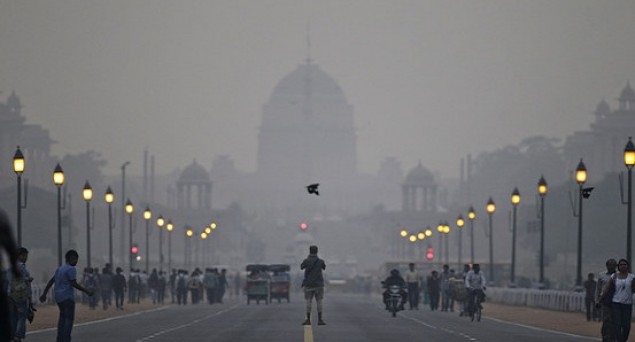Noida, 04 June 2015: With World Environment Day on June 5, a group of scientists have expressed concern over the toxic air in Delhi and the national capital region (NCR).
Speaking during an event for World Environment Day at Amity University here, the scientists suggested measures like fitting Diesel Particulate Filters (DPF) in diesel vehicles, ensuring that new Commercial Diesel Generator (DG) sets be based on CNG and existing DG sets are retrofitted with requisite pollution control systems to reduce toxic air in Delhi /NCR.
The programme was organised by the “Amity Institute of Environmental Toxicology, Safety and Management” and “Amity Institute of Environmental Science”.
On this occasion, B. Sengupta, an environmental scientist, suggested that instead of phasing out diesel vehicles in Delhi/NCR, Diesel Particulate Filter, a device designed to remove diesel particulate matter or soot from the exhaust gas of a diesel engine, could be fitted into older vehicles including heavy duty commercial vehicles to reduce emissions.
Sengupta, a former member secretary, Central Pollution Control Board, said it was possible only if 50 ppm (parts per million) sulfur fuel was available.
Sengupta said the most critical and harmful pollutant in the air was PM2.5 and the major contributors of PM2.5 in the environment were combustion sources like vehicles, coal, biomass and garbage combustion.
Expressing concern he said, “The levels of Benzene and PM2.5 are very high in the air of Noida which is a matter of grave concern since an average adult inhales 12,000- 15,000 litres of air everyday and PM2.5 easily enters into respiratory track and blood.
“Continuous and excessive inhaling of PM2.5 could cause dire problems such as premature deaths, lung cancer, heart attacks and development of chronic lung diseases and other problems,” he added.
Anjali Shrivastava, chief scientist and Head, National Environmental Engineering Research Institute (NEERI), said human beings’ greed and need for power had led to accelerated changes in the climate leading to air, noise and water pollution and depletion of resources.
“The number of shopping complexes and malls have been increasing rapidly in Delhi/NCR which are highly energy intensive with high carbon footprints,” Shrivastava said.
“The products which are consumed in malls and shopping complexes are flown in from different parts of the country and even abroad and have to be preserved at certain temperatures which involve a lot of energy and power,” she added.
(IANS)





